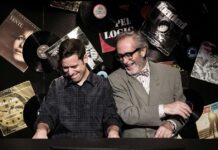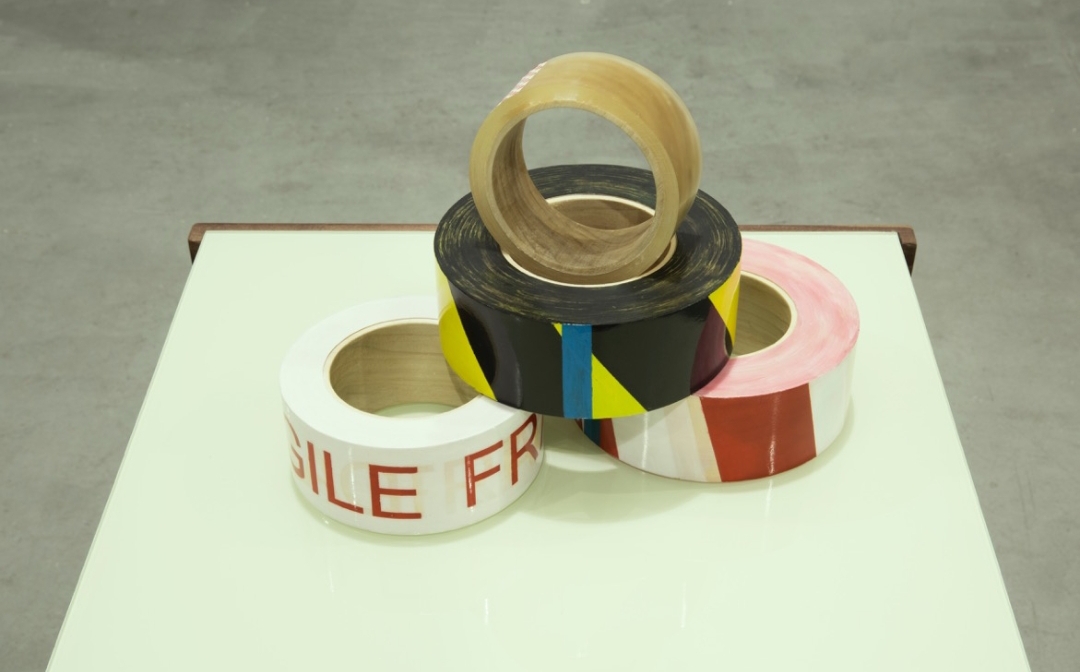Επιμέλεια: Εύα Πετροπούλου Λιανού
Bluesky en een slechte droom
Nadat ik het gezichtenboek had gesloten en
erg veel meldingen tegenkwam waarbij mensen lieten weten
dat ze niet meer op X zitten maar op Bluesky
kon ik veel vrienden wissen, blokkeren. Weg. Ze komen
toch niet meer terug. En weg is weg. Het ruimt wel op zo.
En wat je dan nog overhoudt
zijn vast de blijvers of de doorzetters onder ons, denk ik dan maar.
Intussen gisteren wel een nare dagdroom gehad over mijn kleine stad,
het zit tussen een dorp en een grote stad in. Hier wonen
ongeveer 30 000 mensen. Stel je voor dat ze allemaal ineens weg zijn,
zoals het aantal in oorlogsgebied dat eigenlijk nog hoger ligt.
Die vrouw op straat, die gearmd loopt met haar man, de kinderen
die op fietsen langskomen naar school, of naar het zwembad gaan, een lange rij
begeleid door onderwijzers in gele jassen. De mensen die hun hond uitlaten,
mijn buren, oude dames intussen. De jongelui die hier wonen en overdag hun auto
meenemen naar het werk. Dan staan de parkeerplaatsen bijna leeg,
’s avonds zie je dan hun auto staan, een Audi, VW, Volvo, of elektrische wagens.
Die hangen aan een laadpaal, stekkerauto’s. Stel je voor dat al die mensen
in mijn stad ineens plat lagen. Ook de kindjes in een buggy, kinderwagen.
Wat een ellende. Wie stopt dit soort dromen voorgoed?
Velen zijn nu naar Bluesky verhuisd. Het ga hen goed, hoop ik dan maar.
Hannie Rouweler
Bluesky and a bad dream
After I closed the Face Book and
encountered a lot of messages where people let me know
that they are no longer on X but on Bluesky
I could delete and block many friends. Gone. They
won’t come back anyway. And gone is gone. It does clear things up.
And what you are left with
are probably the stayers or the perseverers among us, I think.
In the meantime, I had a bad daydream yesterday about my small town,
it is somewhere between a village and a big city. About 30,000 people live here.
Imagine if they were all suddenly gone,
like the number in a war zone, which is actually even higher.
That woman on the street, walking arm in arm with her husband, the children
who cycle past to school, or to the swimming pool, a long line
accompanied by teachers in yellow jackets. The people walking their dogs,
my neighbors, old ladies in the meantime. The young people who live here and take their car
to work during the day. Then the parking spaces are almost empty,
in the evening you see their car, an Audi, VW, Volvo, or electric cars.
They are connected to a charging station, plug-in cars. Imagine if all those people
in my city suddenly lay flat. Even the children in a buggy, pram.
What a misery. Who will stop these kinds of dreams for good?
Many have now moved to Bluesky. I hope they are doing well. Amen.
Bluesky e un brutto sogno
Dopo aver chiuso Facebook e
aver trovato un sacco di messaggi in cui le persone mi facevano sapere
che non erano più su X ma su Bluesky
potevo eliminare e bloccare molti amici. Spariti. Non torneranno
comunque. E sparsi sono sparsi. Questo chiarisce le cose.
E quello che ti rimane
sono probabilmente i restanti o i perseveranti tra noi, credo.
Nel frattempo ieri ho fatto un brutto sogno a occhi aperti sulla mia piccola città,
è a metà strada tra un villaggio e una grande città. Ci vivono circa 30.000 persone.
Immaginate se fossero tutti spariti all’improvviso,
come il numero in una zona di guerra, che in realtà è ancora più alto.
Quella donna per strada, che cammina a braccetto con il marito, i bambini
che vanno in bicicletta a scuola o in piscina, una lunga fila
accompagnata da insegnanti in giacche gialle. Le persone che portano a spasso i loro cani,
i miei vicini, le vecchie signore nel frattempo. I giovani che vivono qui e prendono la loro macchina per andare al lavoro durante il giorno. Poi i parcheggi sono quasi vuoti,
la sera vedi la loro macchina, un’Audi, una VW, una Volvo o delle auto elettriche.
Sono collegate a una stazione di ricarica, auto plug-in. Immagina se tutte quelle persone
nella mia città improvvisamente si sdraiassero a terra.
Persino i bambini in un passeggino, una carrozzina.
Che miseria. Chi fermerà per sempre questo genere di sogni?
Molti ora si sono trasferiti a Bluesky. Spero che stiano bene. Amen.
Maria Miraglia
This poem captures a sense of disconnection and existential dread in the digital age, blending the triviality of online social media platforms with the weight of a haunting daydream about loss and absence. The juxtaposition of people “moving to Bluesky” and the sudden, catastrophic disappearance of a small town creates a jarring contrast, highlighting the fragility of both virtual and real-world connections. The poem’s contemplative tone, paired with its undercurrent of unease, offers a poignant reflection on isolation, impermanence, and the shared vulnerability of human lives.
Blending the Mundane and Existential: The shift from the casual act of managing social media connections to the chilling image of a town wiped out is startling and effective. It mirrors how small, everyday actions can sometimes trigger larger reflections on mortality and human fragility. This contrast creates tension and depth in the poem.
• Grounding Details: The detailed description of life in the town—the couple walking arm in arm, children cycling, electric cars plugged into charging stations—makes the town feel vivid and real. These small, specific moments make the imagined loss feel even more devastating, as the reader can clearly picture the lives that would be affected.
Reflection on Digital and Real Connection: The line “gone is gone” applies to both digital friendships and the imagined disappearance of the town’s people. This parallel quietly suggests the fragility of human connection in both physical and virtual spaces, leaving the reader to reflect on what it means to truly “be gone.”
• The Emotional Arc: The poem starts with detachment, as the speaker deletes and blocks friends on Bluesky, but slowly transitions into deeper reflection. The progression feels organic, culminating in a raw, unanswerable question: “Who will stop these kinds of dreams for good?” This question lingers, leaving the reader with a sense of unresolved tension.
Overall Impression:
This poem is a moving and reflective piece that juxtaposes the transience of digital connections with the fragility of real-life communities. The vivid description of the town and its inhabitants creates a strong emotional anchor, making the imagined loss feel tangible and unsettling. The casual tone of the opening contrasts sharply with the weight of the daydream, adding to the poem’s complexity. As it stands, it’s a poignant exploration of modern disconnection, mortality, and the quiet hope that we might hold onto what truly matters. It invites the reader to reflect on their own relationships, both online and in the physical world, with a sense of melancholy and care.
Hannie Rouweler (Netherlands, Goor, 13 June 1951), poet and translator.
Her sources of inspiration are nature, love, loss, childhood memories and travel. In
1988 she made her debut with Regendruppels op het water (Raindrops on water). Since
then, more than 40 collections of poetry have been published, also ten translations into
various foreign languages.
Poems have been translated into about 35 languages. She attended evening classes in
painting and art history, art academy (Belgium).
She has received awards from the Netherlands and abroad, e.g. ‘best poet of the year
2021’, from the institute IPTRC voting international executive committee in China.
Hannie Rouweler followed short commercial and language courses at language
institutes (Arnhem, Amsterdam, Hasselt BE). She has published several stories (including
short thrillers); is editor of several poetry collections.































